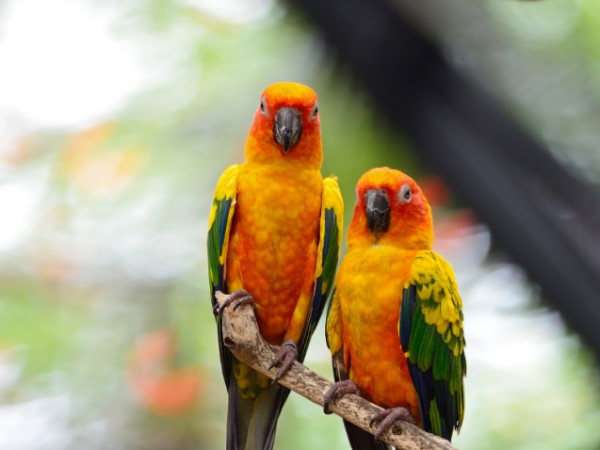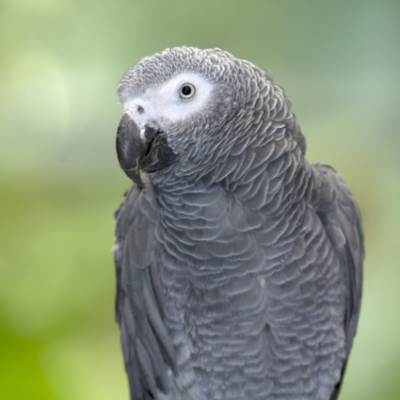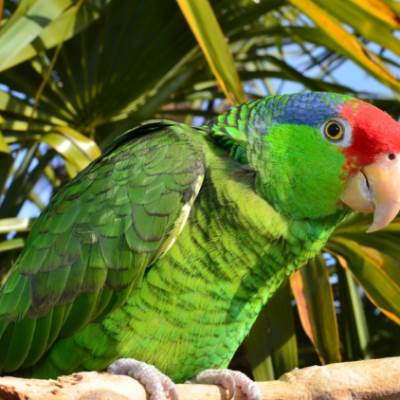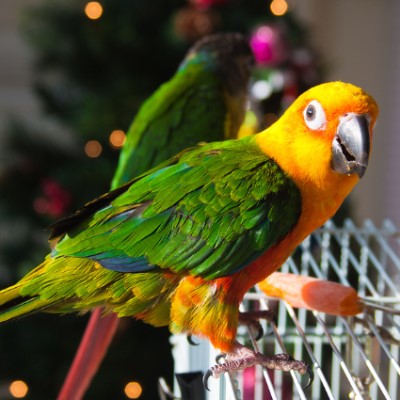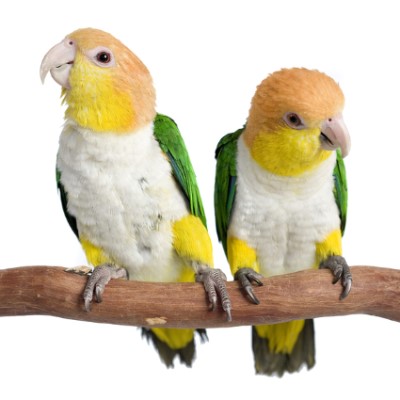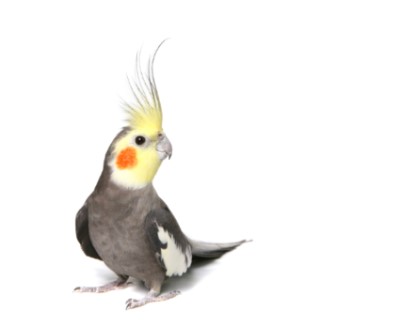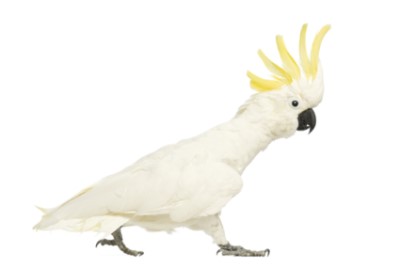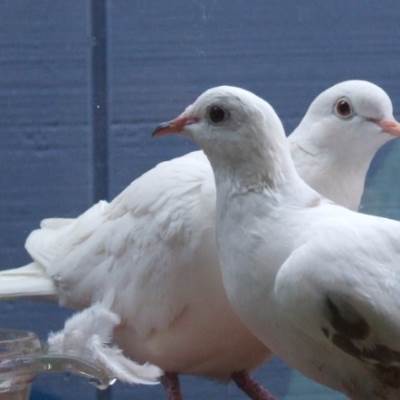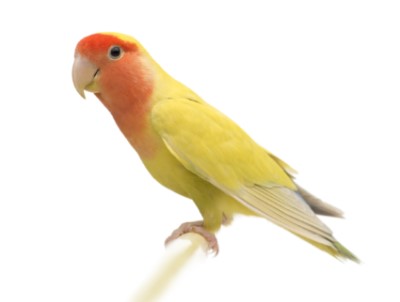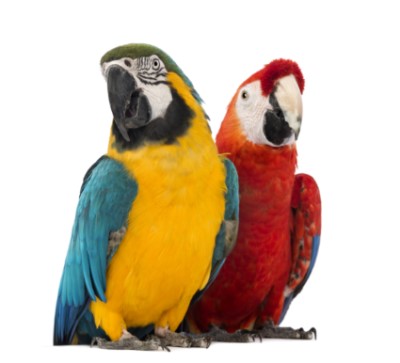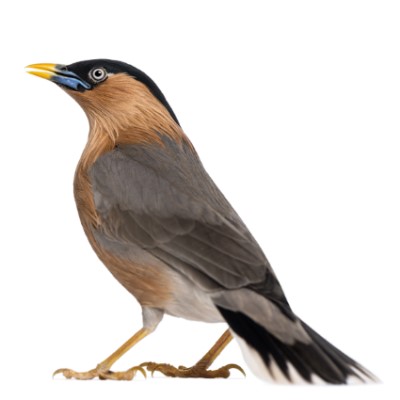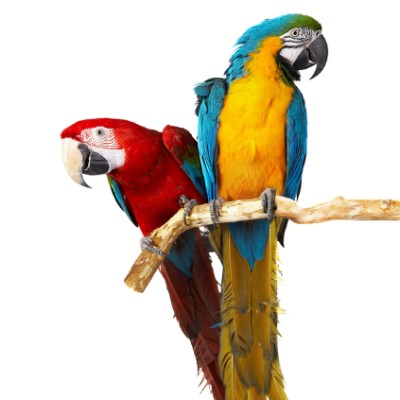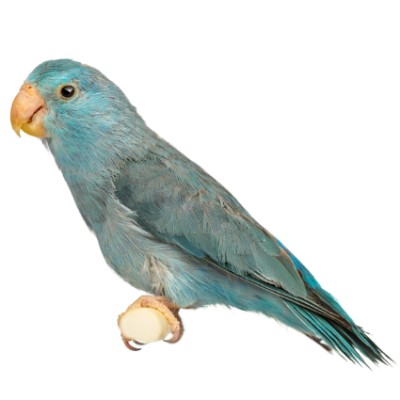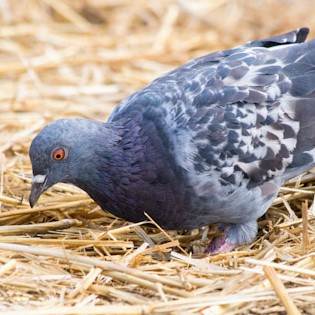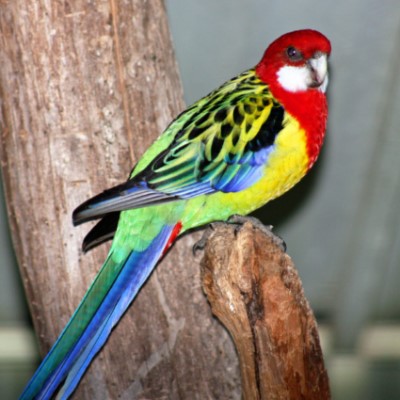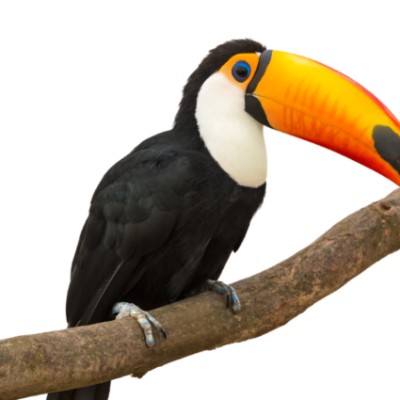Green-cheeked Conure—The easiest conure to keep because she will not be noisy or nippy or destructive. Bonds to family and playful.
Jenday Conure (picture above)—Noisy and nippy, yet affection with their favorite person, and sometimes sleeps on her back.
Nanday Conure—Green with black head and red feet, the nanday has a reputation for being moody and needs a lot of attention.
Patagonian Conure—The largest and loudest conure, more talkative, and definitely playful.
Sun Conure—Beautiful and playful, but have the highest pitch screams.
Common Reasons for Surrender
The conure has a loud shriek and has been described as “nasty” due to its biting habits, and owners who are new to keeping parrots may feel overwhelmed and surrender the conure.
Pros
If you see a young conure bobbing her head, she’s telling Mom and Dad she’s hungry. However, many conures continue to bob their heads as adults. If you combine this head bobbing with the acrobatics performed by the conure, you can see why you can turn on the music and be entertained.
The conure is an attractive bird in bright yellows, oranges, and greens. The conure can talk, act funny, and even hang by one foot and do other comical things.
Cons
Conures like to sit on your ear and shriek. The conure is fun to watch but bite a lot and, if you’re not careful, he will grab your ear and pinch it. You have to keep his cage interesting because he will want to explore and look at new things. Conures are not a pet for children.
Diet
You may feed your conure parrot a varied diet of pellets, seed, fruits, vegetables, and as an occasional treat feed your bird a small piece of meat on a bone. He will likely eat the meat and crack open the bone to eat the marrow, a special treat for the conure parrot.
Exercis
Conures love a large play area with toys that ring (the louder the better) and chew toys that satisfy their desire to bite excessively.
Possible Health Issues
Like other parrots, the conure is susceptible to viruses, bacteria, and parasites. Without proper nutrition and interaction (socialization), the conure will get sick. The conure is not a loner and needs a flock.
Housing
Unlike the rosella parrot which likes the floor of her cage, the conure enjoys the overview and wants to roost high above the ground. She enjoys sleeping in hanging beds, but if this makes your parrot territorial and aggressive, remove the hanging bed.
Grooming
Provide your conure with a therapeutic perch that is ¾ to 1 ½ inches in diameter so he will be able to keep his nails trim.
Training
The conure needs to be socialized and handled at a young age or he can grow into showing his bad side—such as persistent screaming, biting, and feather plucking. Conures naturally gravitate to one person but can be trained to socialize with the entire family if worked with daily from a young age.
Entertainment
The conure needs rings, swings, and bungee cords. Don’t forget to provide him with chew toys. Owners say conures can be quite comical and entertain the family with their acrobatic moves and loud squawks.
We want to thank the Exotic Bird Hospital in Jacksonville, Florida, Avian Rescue Corporation (ARC), Concord, California, and Feathered Friends Forever, Harlem, Georgia, for help with this profile.
